MercoPress. South Atlantic News Agency
Economy
-
Tuesday, February 4th 2025 - 05:17 UTC
FAO’s 80th anniversary to be celebrated during the Chinese Year of the Snake

FAO Director-General QU Dongyu led the celebration of the Chinese Lunar New Year at the organization's headquarters in Rome marking the beginning of the Year of the Snake. The event carried special significance this year as it coincides with FAO’s 80th anniversary, prompting reflections on past achievements and future aspirations.
-
Monday, February 3rd 2025 - 19:28 UTC
US tariffs on Mexico on hold after deal between Trump and Sheinbaum
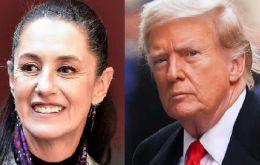
US President Doland Trump agreed Monday to put on hold for at least a month his decision to impose 25% tariffs on Mexican products after a conversation with his colleague Claudia Sheinbaum, during which new conditions were agreed upon.
-
Monday, February 3rd 2025 - 10:40 UTC
Trump signs 25% tariffs on Mexican and Canadian goods
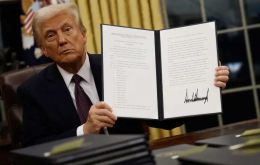
US President Donald Trump on Saturday signed the documents imposing a 25% tariff on Mexican and most Canadian goods and a 10% tariff on Canadian energy products and Chinese goods. The target countries announced retaliatory initiatives. The reciprocal import/export taxation will become effective Feb. 4.
-
Monday, February 3rd 2025 - 08:44 UTC
Paraguay's BCP outlines scenario under Trump's policies
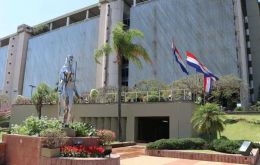
Paraguay's Central Bank (BCP) has picked up the glove from US President Donald Trump's barrage of protectionist economic measures and spoke of higher financing costs among the possible consequences of the Republican leader's policies. In addition, the US dollar would keep its upward trend against the guarani amid global uncertainty. Hence, there would be no room for a reduction in benchmark interest rates.
-
Monday, February 3rd 2025 - 07:38 UTC
Trump's tariffs already have repercussions in Japan
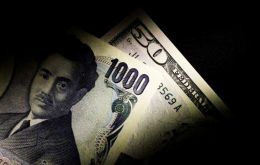
Hours after US President Donald Trump announced the imposition of 25% tariffs on Mexican and Canadian products, the Nikkei index in Tokyo, which groups together the 225 most representative stocks in the market, plummeted by 2.5%. The White House measures over the weekend impacted the Japanese capital early Monday morning.
-
Saturday, February 1st 2025 - 10:00 UTC
Paraguayan President describes importance of trade openness in speech at WTO
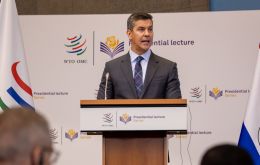
Paraguayan President Santiago Peña Friday underlined the importance of trade openness and multilateralism during his speech at the World Trade Organization's (WTO) headquarters in Geneva. Peña highlighted “the importance of global integration to strengthen trade and resilience in the face of uncertainty,” the Ministry of Industry and Trade (MIC) said in a statement.
-
Thursday, January 30th 2025 - 13:28 UTC
BOFA report predicts relative stability in Argentina until mid-term elections

A Bank of America (BOFA) report released this week forecast that Argentina's Libertarian administration of President Javier Milei would be lifting the so-called exchange rate stocks in December this year. By that time, the rate was projected to stand at AR$ 1,400 = US$ 1. The study also deemed a US$ 20 billion from the International Monetary Fund (IMF) plausible, to endorse Milei's “chainsaw” State spending cuts policies amid greater exchange rate flexibility.
-
Thursday, January 30th 2025 - 11:29 UTC
Fed leaves rates unchanged with a message to Trump, “in no hurry to adjust policy stance”
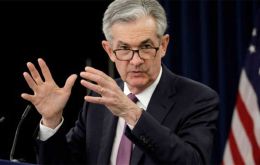
The United States Federal Reserve left interest rates unchanged following the two day meeting with Fed chair Jerome Powell emphasizing at the press conference that “the bank is in no hurry to adjust its policy stance, since the US economy remains strong”.
-
Wednesday, January 29th 2025 - 20:39 UTC
Milei’s Davos speech triggers political and social uproar
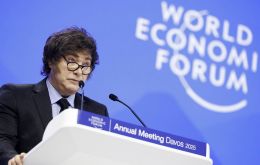
Argentine President Javier Milei generated a wave of criticism after his statements at the World Economic Forum in Davos, where he linked homosexuality with pedophilia. His words triggered the call for an “anti-fascist” march, which is expected to be massive in Buenos Aires and other cities of the country
-
Wednesday, January 29th 2025 - 20:07 UTC
Financial scandal in Uruguay: Conexión Ganadera and the model that ended up as a Ponzi scheme

The collapse of Conexión Ganadera, one of Uruguay's leading cattle investment firms, has left hundreds of savers in suspense after it was revealed that its financial model operated as a Ponzi scheme. This was stated by accountant Ricardo Giovio, hired by the company to evaluate its situation.
